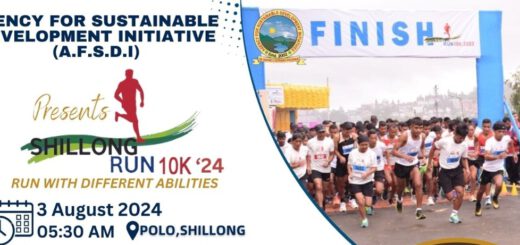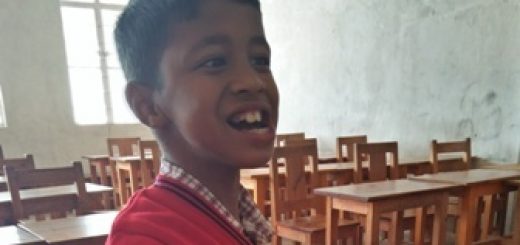AFTER CARE PROGRAMME: A NEW PROJECT OF THE AGENCY
What is After Care?
In the context of the guidelines for After-Care of children under I.C.P.S., After Care is the provision of care for all children, children with special needs, a child in need of care and protection/conflict with law as she/he steps into adulthood. This is especially required if a child has gone through a long period of institutionalization, which is likely to result in lack of social adjustment.
Whom does it serve?
After-Care for Children serves those young Adult after they have reached the age of 18 years, and are discharged from Children’s Homes/Special Homes. It is to help prepare these young adults to sustain themselves during the transition from institutional to independent life. The objective of after care is to enable such young adults to adapt themselves to society and to encourage them to move away from institution based life. After care services are provided till the age of 21 years, and in exceptional circumstances, two more years after completion of 21 years.
Objectives:
- To enable such young adults to adapt themselves to society and to encourage them to move away from institution based life.
- To enable them in Physical, cognitive, spiritual and educational Development.
- To help the young adults gain skills for increasing their employability and enable them to adapt to life in the society.
Design of the Programme:
The programme will be run by the Agency for Sustainable Development Initiative, a project of the Khasi Jaintia Presbyterian Synod Sepngi.
Funding and Budgeting:
The voluntary organization managing aftercare programme will be receives grants up to a maximum of Rs. 2000 per person per month from the State Child Protection Society (S.C.P.S.). This monthly grant is spent for meeting individual needs of young adults like food, clothing, health care and shelter, age appropriate and need-based education and vocational training, and stipend and any other requirements.
Who will this Programme serve?
This After-Care service will be mainly concentrate only for the boys who has attain the age of 18 years whose relatives are not ready and eligible to take responsibility the child after the discharged from the Child Care Institutions.
Where will this programme be housed?
This programme will be housed at Nongpyndeng, Nongstoin along with Rev S Wollington Children’s Home.
Staff Recruiting:
The voluntary Organization Managing the After-Care Service will have to appoint one Supervisor who will be supervise the children and the salary for the Supervisor will be funded by the Sponsoring Body itself.
Job Description of the Staff:
The After Care organization will maintain individual case files for each young adult placed in after care.
The After Care organization will be required to submit a statement of accounts to the DCPU every six months and an annual audited statement. They will also send a quarterly progress report for each child with the following information:
- Educational status (If child is studying)
- Health status (Specify in case of any health problems)
- Vocational Training( Specify the training and level)
- Employment status
- Trainings attended (Life skills etc.)
- Mention the general progress of the young adult and his/her psycho-social development
The Organisation will also inform the D.C.P.U. if they have established any linkages with the corporate sector, NGOs and any civil society organizations for placements of the young adult.
Admission Procedure for the children in the After-Care Service:
When any child in the Child Care Institution (C.C.I.) completes 17 years of age, the C.C.I. would assess whether he/she would be able to adjust to an independent life in the society once he/she leaves the Institution. In case, it is felt that a young adult would find it difficult to live without support, such a young adult would be considered for After Care services. Protection Officer (Non Institutional Care)/Probation Officer will scrutinize the documents for eligibility of children, recommended by the C.C.I. The list of children would then be finalized and sent to the D.C.P.O. for approval.
Order for placement of young adults under aftercare schemes will be passed by the Child Welfare Committee (CWC) or the Juvenile Justice Board (JJB) or the Children’s Court (CC). Aftercare services are provided till the age of 21 years, and in exceptional circumstances, two more years after completion of 21 years.
Service Provided:
- Housing facility, for a maximum period of 3 years.
- Professional emotional and psychological counselling on a weekly basis.
- Health care through tie ups with nearby medical centres/doctors
- Vocational training facilities through tie ups with educational institutions teaching certified skill development courses under ‘National Skill Development Programme”/I.T.Is and other recognized vocational training institutes. The aim is that the child is prepared for employment through a certificate course and can be gainfully employed thereafter on this basis.
- Assistance in opening bank accounts and for getting identification such as “Aadhar” number, ration cards, voting cards, etc.
- Out of pocket expenses during the course of the vocational training till such time that the youth gets employment.
In addition the above, assistance would be provided for the following:
- If the child is interested in education, in addition to the vocational training, he/she may be encouraged/ assisted to pursue the N.I.O.S. programme.
- Training, apprenticeships and placement in collaboration with professional agencies and corporates. This may include convergence with Labour Department and other agencies for skill development.
- Arranging loans for entrepreneurial activities along with professional advice and training
- Peer counselling
- Legal services that may be required by the child through DCPU or linkages with other organizations.
- Computers, recreational material and other facilities at the place of stay.
- Specialized counseling services in polyclinics may be provided to those children who have disciplinary issues, problems of substance abuse, frequent absenteeism etc. so that they can be mainstreamed into society.






